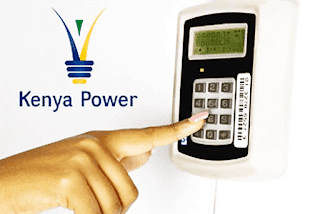Token Prices set to Rise
*Photo from Google*
For the second consecutive month, the price of power has increased, forcing Kenyans to dig further into their wallets.
After the Energy and Petroleum Regulatory Authority (EPRA) raised the fuel and foreign exchange components shown on the power bill, this occurred.
From Ksh6.79 in September, the Fuel Cost Charge will cost Ksh7.09 per unit. The Foreign Exchange Fluctuation Adjustment also increased from Ksh1.37 to Ksh1.48 per unit. For all meter readings to be taken in October 2022, notice is therefore given that all prices for relevant electrical energy mentioned in Part II (the Schedule of Tariffs 2018) will be subject to a fuel energy cost charge of + 709 Kenya cents per kilowatt hour (kWh).
The FCC is the largest variable cost that Kenya Power adjusts and collects on behalf of the thermal power plants. The intention is to protect thermal power producers from the expensive fuel price. Contrarily, foreign exchange protects participants in the power sector from the local currency's unpredictability during the importation of goods and the repayment of debts. US dollars are used to indicate the quantity.
Kenya shillings are currently worth Ksh121 per US dollar, which is an all-time high for the local currency.
The two elements will now force Kenyans to pay significantly higher token fees, demonstrating the degree of the country's high cost of living.
Kenyans have expressed dissatisfaction online with the rate at which tokens are used up to the point where refilling is required several times each month.
"Hello Kenya Power, your tokens are like volatile liquids. One moment you have them and the next, they're gone. They're depleting even when all electrical appliances are off. What are you doing?" Solomon Kuria tweeted.
"For a Ksh100, I am getting 3.9 units. During (former president) Uhuru's time I would get 5.4 units but what shall we say?" Terry Ann posted on Facebook. Other levies imposed on electricity include the Water Resources Authority (WRA) charge which indicates the energy purchased from hydropower plants above One Megawatt, REP Charge (Retail Electric Provider) which is 5 per cent levy on the cost of the units of power consumed by a customer.
Depending on the economic situation, inflation adjustment charges either reflect the present state of purchasing products and services.
In an effort to reduce the cost of living, President William Ruto's administration had pledged to slash electricity costs when the new development occurred.



Comments
Post a Comment
Comment